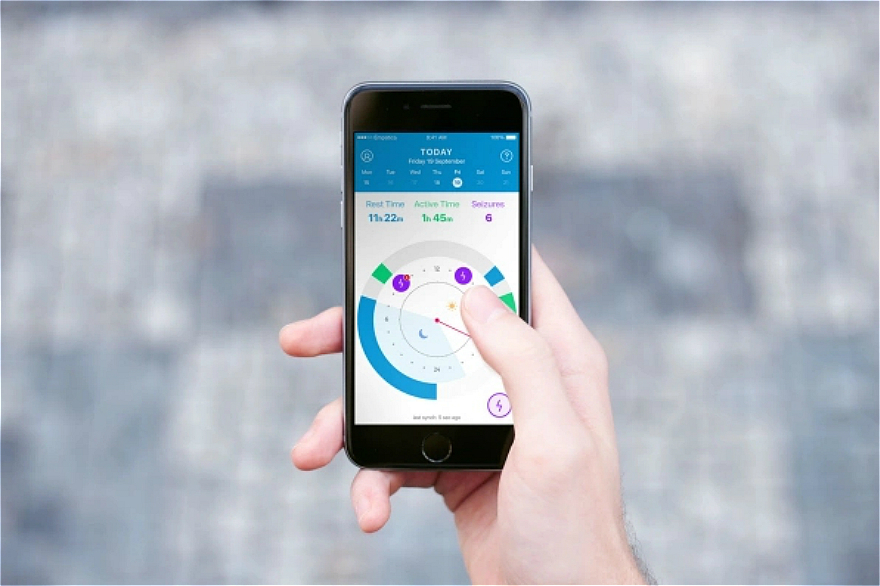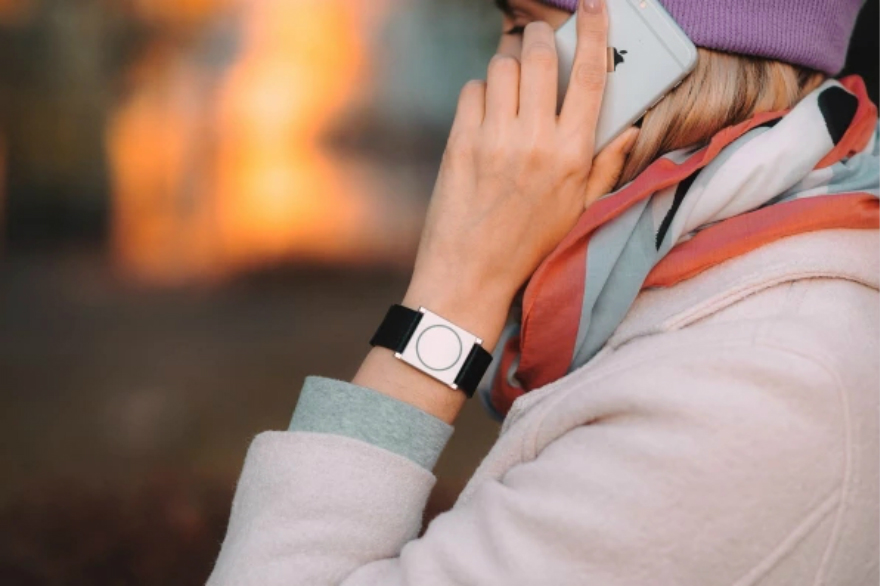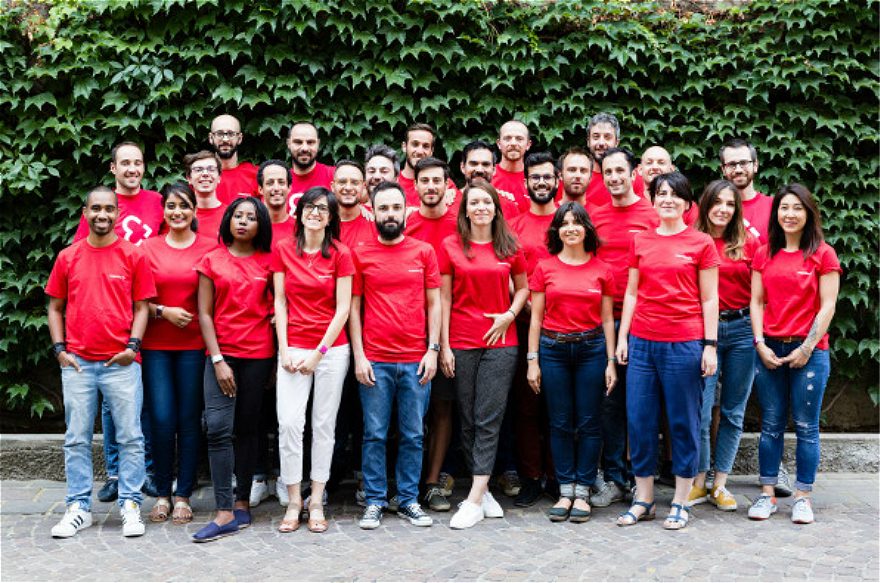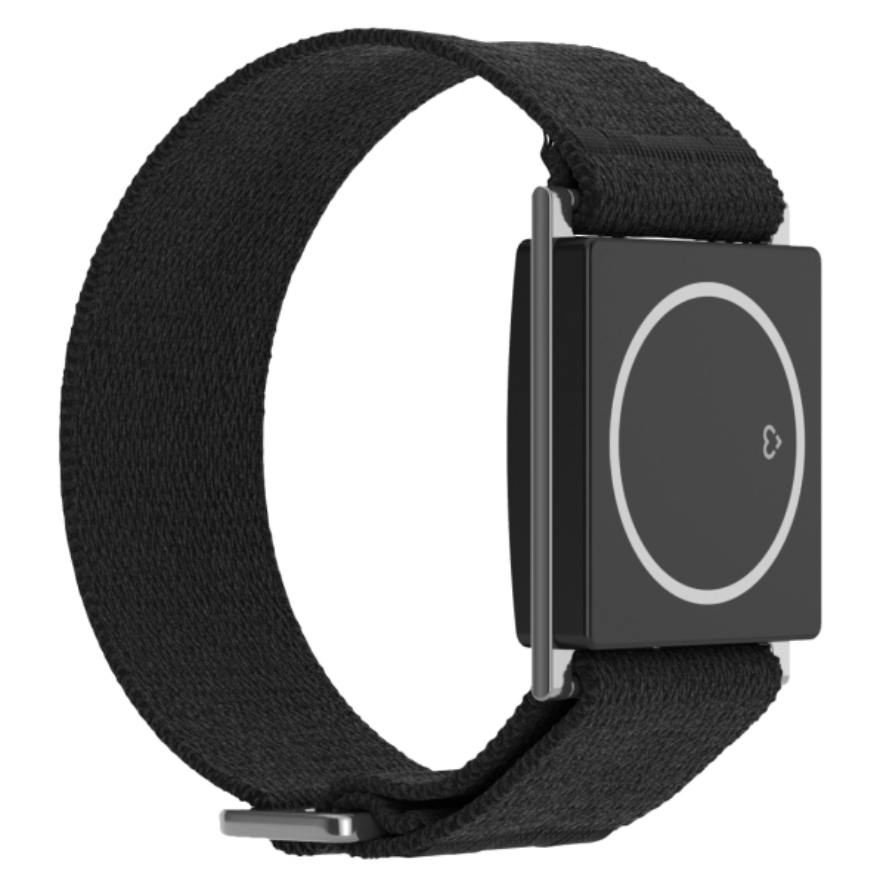Have you ever thought about it, if you can scientifically determine what the human body feels about stress? Even better: What if there is such a thing that predicts stress and anxiety?
Empatica has launched Embrace, a wearable device designed to change the future of stress management. Embrace looks like a smart watch and has been approved by the FDA (US Food and Drug Administration) to detect seizures primarily by analyzing physiological signals. The retail price is $249.
Co-founder Matteo Lai said: "Our focus is on developing sensors to understand and analyze human behavior."
According to a rough estimate by the Centers for Disease Control and Prevention (CDC), approximately 1.2% of the US population (ie, 3 million adults and 470,000 children) suffer from epilepsy. Empatica is trying to manage the condition more effectively, while shifting epilepsy research to a larger, broader problem: stress and how to deal with it.

Pressure measurement
Rosalind Picard, a co-founder and chief scientist at Empatica, a professor of media lab at the Massachusetts Institute of Technology, said: "Pressure is a complex concept." Analyze stress levels by measuring the wearer's flight or fight response. And you need to distinguish this pressure from other similar events—for example, watching the game of your favorite sports team, or the pressure of shopping at Macy's.
Stress can trigger a reaction in the sympathetic nervous system, activate sweat glands, and often make your palms moist. But even if you don't have a clear sweat, the current flowing through the activated sweat will still change the surface of the skin. This is called "skin conduction". “This is one of the signals we measure pressure changes,†Picard said.
Empracea's Embrace also monitors other physiological data - pulse, blood activity, sleep and body temperature. The device is paired with a smartphone via Bluetooth, alerting the epileptic (or caregiver) to stop working when the pressure rises or is about to rise, and early breathing exercises or meditation to relieve stress and try to avoid seizures.

This product is definitely a valuable guide for those with epilepsy. If you have a child with epilepsy, the signal on the Embrace smart watch turns green or red to indicate that the child can travel safely on the day.
Picard stressed: "We don't monitor the pressures. What our products do is measure human physiological changes."
Empatica, based in Cambridge, Massachusetts, initially focused on epilepsy because it is considered an important area of ​​research for the human brain, with special analysis of left and right brain differences. The startup hopes that one day it will become an authority in the field of human stress research, and that day is not too far away.
Lai said: "Our products are still used in a limited range of applications, only for specific medical applications. It will take some time to apply them to other places."

Design role
In 2012, Rosalind Picard, then a professor at the Massachusetts Institute of Technology Media Lab, founded the Sentiment Analysis Research Group, which aims to understand human emotions through facial expressions and body signals and to convey emotions to robots.
Picard began using Empatica's early sensor technology to better understand children with autism, which are often misunderstood. She said: "Autistic people tend to feel tremendous pressure, and people around them don't notice this. By reading the skin conductance signal, people can see that this person is very excited or very calm inside - That is, there is not much difference on the surface."
Lai and Picard finally realized that they had similar research goals and decided to reach a cooperation in 2014. The two together conceived a new concept: designing a smart wearable device that tracks pressure data and looks like an Apple Watch.

Lai said: "People with chronic diseases get second-rate design and service. No one cares about doing beautiful things for them." But because of this, "the compliance is very low and the experience is very bad. People don't want to wear ugly equipment, so people don't want to wear ugly equipment, so They don't actually do the job."
The Embrace team wanted to design an automation product that users could proudly wear. The design is similar to a stylish and minimalist Scandinavian (Scandinavian) version of the Apple Smart Watch, which uses polished steel and never warns strangers that the product itself will be used in the medical field.
The startup launched a crowdfunding campaign in Indigogo in 2015 with a total of 3,000 investors, totaling nearly $800,000, and began shipping to customers in 2016. At the beginning of 2018, it was approved by the FDA as an official medical device .
One of Embrace's biggest buying points is customization. Empatica relies on machine learning to accumulate user habits and cycle data to improve its predictive power. Lai explained that the more data each patient gets, the higher the effectiveness and accuracy of the algorithm.

Lai emphasizes: "If you want to make 'behavior' predictions, this method is of the utmost importance." He said that the current method of monitoring epilepsy can be replicated for other neurological diseases such as depression and anxiety. These categories of products are coming soon, but are still in the research stage. â€
He explained: "Many of these diseases are related to the complexity management in daily life. So we research and develop monitoring technology is also to help people make better choices for their behavior. The way you can intervene, with Time to learn and change things.†Picard explained that solutions can be achieved through sleep and breathing changes, counseling, or by adjusting diet, workload, physical activity, or “a complex combination of some or all of theseâ€.
Ultimately, Empatica's goal is to further analyze the data, especially predictive analysis. The idea is that if there is enough information, these devices can advise people on what to do next to prevent panic attacks and other stressful reactions. The company introduced another smartwatch sensor called the E4, which is only used for scientific research (not for sale).

The reporter (the author of this article, Rina Raphael) spent a day wearing E4. Some friends saw that he had first got the latest version of Apple Watch. A friend pointed out: "The new version looks even cooler." The E4 also proved to be the most stressful when trimming rosemary twigs. The reporter said: "The E4 flashing blue light on my wrist warned him to put down the scissors and think about how to deal with my garden."
Although Empatica believes that the device can be successfully extended to other behavioral issues, there are still some challenges. Most notably, the device needs to be able to translate data patterns into actions. Picard said: "It's actually very difficult to provide this data to a random person and have them interpret the data correctly."
Lai acknowledges that “there is still some work to do†to narrow the gap between data and identifiable systems. He explained that the ideal situation is that the device can reflect the same idea as the fitness tracker counting step, "not counting your brain."
Currently, the Empatica research team is focusing on more urgent life-saving applications, such as preventing SUDEP (accidental death from epilepsy) before starting to apply more common diseases.
Picard said: "Empatica's goal is that one day technology can help us deal with everyday stress and anxiety: "We are developing applications that can help people understand stress. The ready-made technology is already there, so let's see how we can achieve it. â€
Fresh Plum Fruit,Plum Dried Fruit,Fruit Sour Plum,Sweet Sour Plum
Laiwu Manhing Vegetables Fruits Corporation , https://www.manhingfood.com